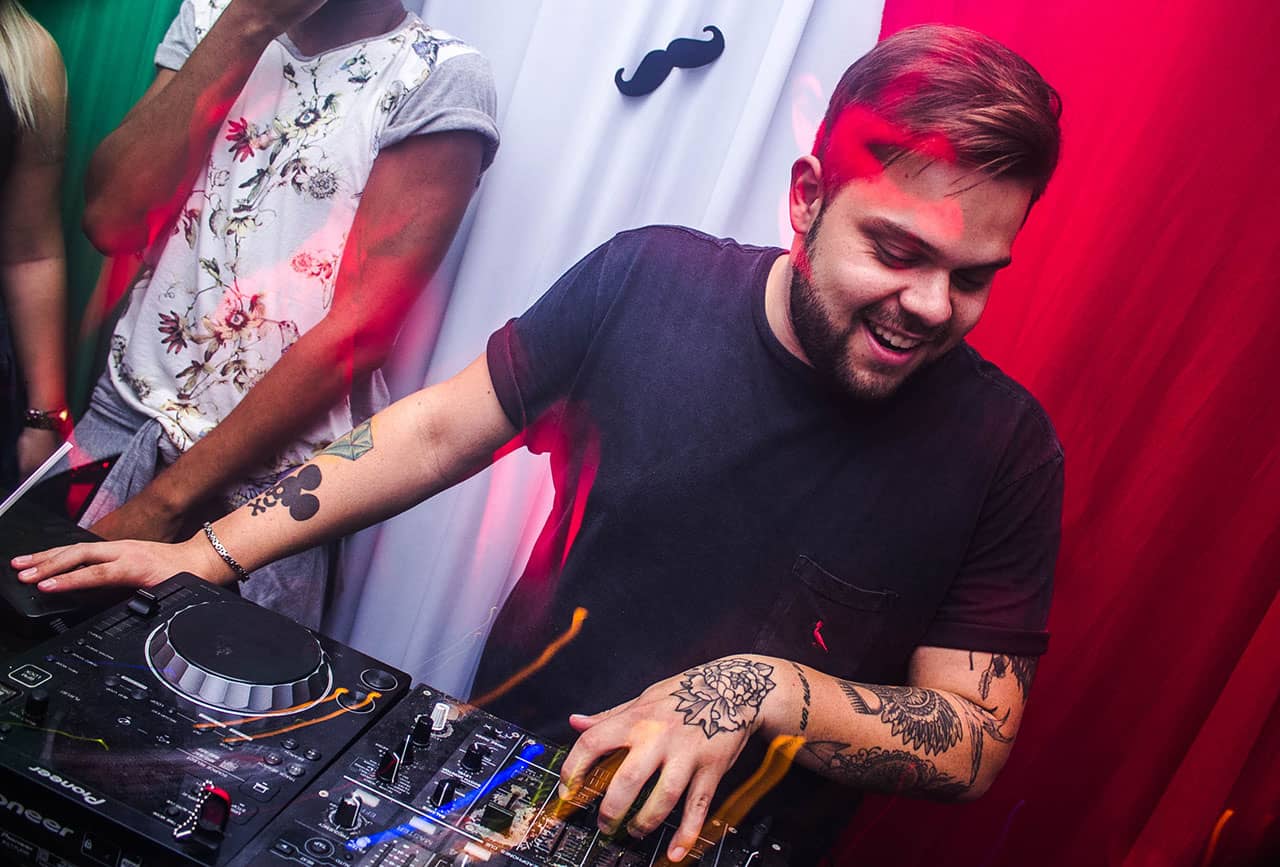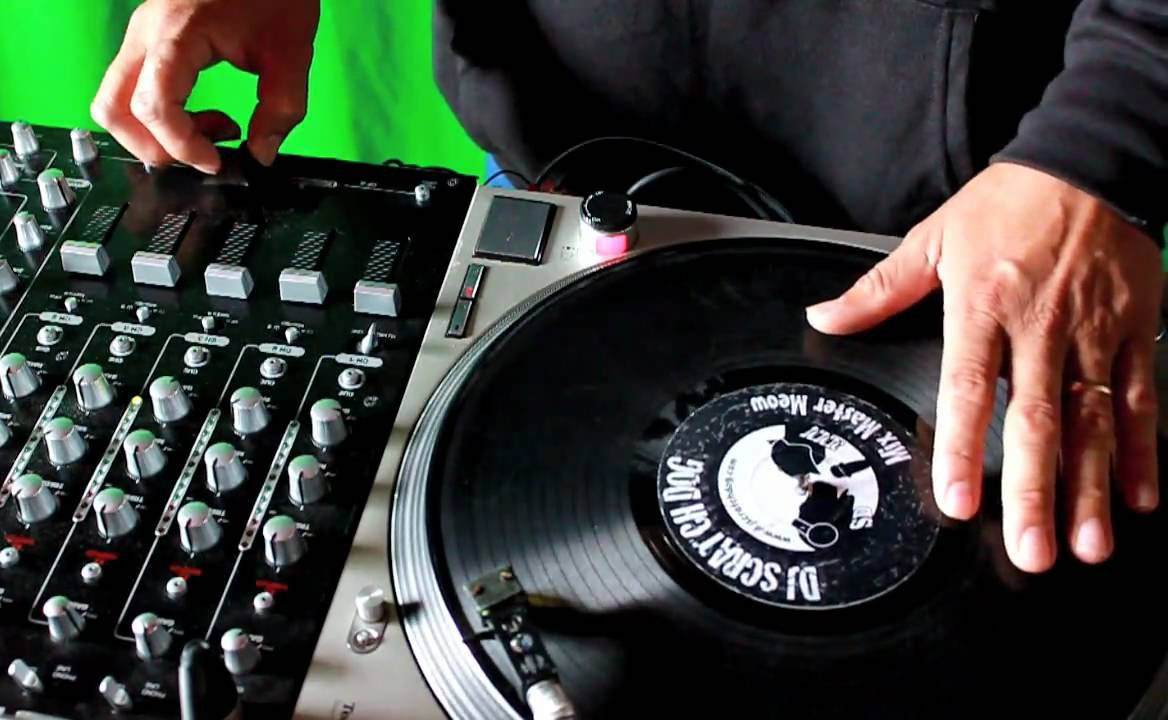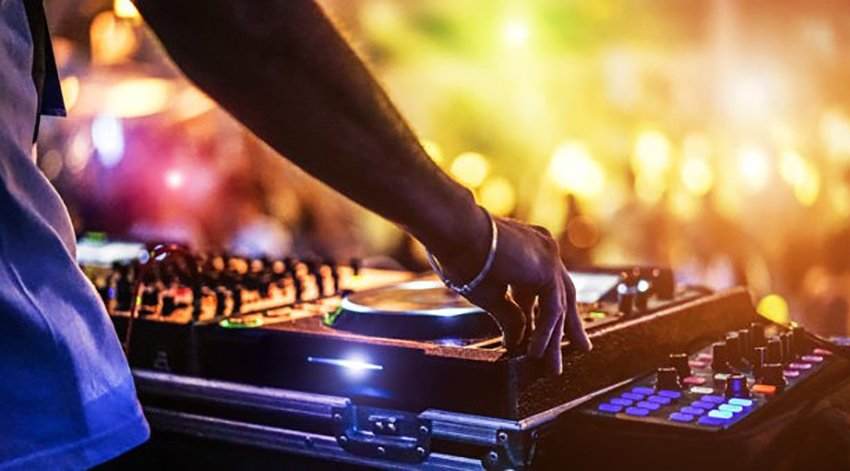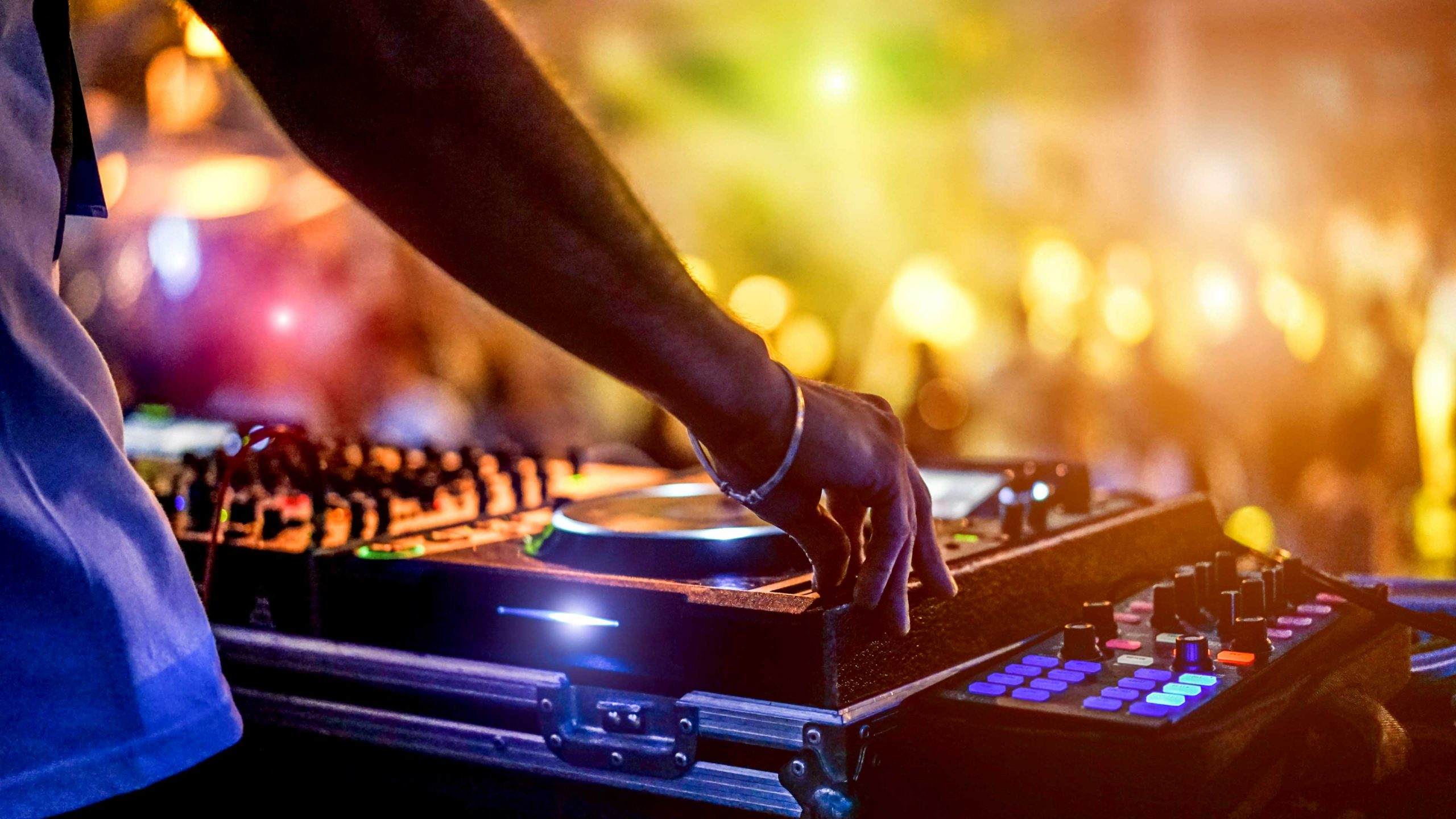The idea of becoming a DJ and making some of your own beats in your spare time may seem like a fun idea. What separates an amateur DJ from a professional comes down to a number of factors.
Getting up on stage or even getting your song featured in something means polishing your tracks. There are some simple mistakes that many rookie DJs make that can end their careers quickly.
What every new DJ should strive to do
When you’re going to be DJing live or even producing tracks for other artists, you need to be comfortable with your gear.
Something as simple as hitting the wrong button inadvertently or being able to read the crowd can make you seem incredibly unprofessional.
Keep in mind that even the most professional DJs have made mistakes when they were starting their careers. In this article, we will go through some of the top 25 mistakes that DJs make so that you can fix them early on and improve your skills.
The top mistakes DJ mistakes to avoid:
1. Missing out on quality gear

Becoming a DJ is an investment. If you want to be a professional, you’ve got to have a professional sound. Investing in equipment that can help you establish a unique sound for your music is essential.
This means finding something that you’re going to be comfortable with on stage, and that can produce a premium sound quality during a performance.
If you’re worried about the price, remember that as you upgrade your equipment, you can likely sell it off on online classifieds to recoup some of the cost.
Investing in this equipment may not lead to many losses, and some of the most sought-after DJ gear does not really depreciate.
- Put the research and find out what the industry standard is for quality mixers, turntables and synth boards.
- Speak to some of your peers and learn what others are doing to get the hottest new sound in the industry.
- Don’t be afraid to go your own way so that you can produce something unique with your equipment.
2. Don’t Just use equipment that provided for you
Several DJs can often get held up with the process of using the gear that’s available at the club. When it comes to DJ gear, you should always be using something that you’re comfortable with.
The equipment that’s available from sound techs at the clubs has likely seen heavy use, and you may have to make some adjustments with it to make sure that you can sound different.
Spare yourself some time and don’t be afraid to lug your own gear to an event.
3. Forgetting to use an automatic lock when you are playing live
You may never use the automatic lock at home when you are practicing on your decks. It’s quite easy to feel in control at your own home studio or with your set up and minimal distractions.
When you’re reading the audience’s experience and feeling the ambiance of a live gig, it’s easy to make mistakes.
Putting the automatic lock on your decks can make sure that you don’t change over too quickly or by mistake.
4. Focusing on just one genre

Many beginner DJs focus on creating just one sound or on creating only new and trending music. Finding the latest sound is definitely what will draw a broad audience, but for longevity, as a DJ, you need to be versatile.
You might find yourself booking a gig that requires you to play classical music or even some retro beats.
Sampling from older sounds can also help you appeal to larger demographics. Being a student of music and focusing on multiple genres will be a massive benefit to you as a DJ.
5. Ripping off other artists
Playing a sample of another artist or mixing it into your own track is fine but keep in mind that you should have some ethics regarding any mix.
It’s incredibly disrespectful to rip off another artist’s work by adding just a few effects into the mix and playing their track.
Even though this is a very convenient way to bridge parts of your song or set something up, the artist needs to give you explicit permission before you choose to remix or modify their track.
Many beginner DJs have gotten into trouble when some of their hit songs have taken off, and their fans start to realize that they are direct copies of other work.
- Join a sample or DJ track community
- Check subscription services like DJcity
- Sort sounds for free market use on Soundcloud
6. Overcomplicating the mix with effects
When you start to add effects to the mix of your track, the crisp nature of your beats can start to get ruined. When you’re still fairly new to effects, it’s difficult to know how you can use them effectively as well.
Expert DJs will often add effects to just portions of a remix but continuing to layer on many effects can often ruin a song. Getting experimental during a live show with too many effects may not give you the commanding stage presence you would want.
7. Playing for free
There are many DJs at the beginning that simply want a place to play and kickstart their career. Becoming a DJ is a profession, and it takes money to invest in the equipment. It also takes time to build your music knowledge and effort to practice your skill.
Never take on a DJing gig that doesn’t pay. Whether you’re going to be making beats for another artist or playing an event, you need to receive some compensation to avoid devaluing your skills.
Don’t be afraid to wait for an offer to come along. Eventually, you will be valued for the skills that you have.
You also don’t have to wait around for a massive paycheck. Taking some smaller gigs will help you to gain some notoriety while recouping a few of your costs.
8. Showing up without a soundcheck
Getting to a venue early is crucial to adjusting your volume and making sure that the sound quality will be great for your audience.
Many beginner DJs allow the venue to handle the soundcheck, and this can lead to volume mistakes. Proper acoustic controls and the ability to adjust sound levels on the fly during the gig is necessary.
If you have to do a soundcheck on your own
- Start playing a track and walking around the venue.
- Make sure small elements of the music can be heard even in the far reaches of your space
- Keep in mind that the comfortable volume in an empty venue is usually around 60% of what it should be when the venue is full. A club full of people will often act as a buffer for sound.
- Be ready to adjust the volume throughout your gig.
9. Failing to market/network
To start getting paid gigs, you need to take the initiative to start networking. Joining into a DJ community or even following some of the local venues in your area can help you to build some contacts in your region.
Be sure to follow some other DJs in your community so that you can appreciate the music scene and how others are coming up in the industry.
Don’t think of it as competition for booking gigs, or member that you can collaborate with these other artists and work together to promote your local music scene. It’s beneficial for DJs to work together in community support.
10. Not having back up a gear or a plan
Gigs can go wrong, and broken equipment could have you in a troublesome spot for producing more music. Accidents happen and sometimes gear can get broken.
Bringing some backup equipment to a gig or at least testing out some of the equipment that’s at the venue can make sure you are prepared if you face difficulty.
In a live concert situation, you’ll never be in complete control, and there’s always a chance that there could be problems with the audience, mixes that were started improperly or set up issues that you have to adapt to.
As you gain more experience, you can begin to prepare plans for these situations.
Build solutions early like
- Alternate setlists that use minimal gear
- Practice with a minimal setup
- Test out club/ in house equipment
- Have a list of music stores in the area you are traveling to
- Perform regular maintenance on all your equipment
11. Not knowing your mix well
If you are testing out some new songs or new mixes, make sure that you’re able to practice ahead of any live show or before you hit record. This will help to save you time.
Experimenting can be exciting, especially live, but mixing music that you don’t know well could end with some unprofessional cuts and a horrible remix that could have been prevented.
12. Not bringing spare cords

Your cords are just as important as any of your equipment. Adapters and extension cords are often needed for setting up at any venue. RCA cords and even power extension cords are some of the first items in your gearbox that may start to break.
Having a set power strip for all of your equipment can help with setup and keeping backups for cords of different lengths will make sure you are ready for quick setup at any show.
Bringing spares and having a dedicated setup kit will make touring, collaborating and gigging easier.
13. Not regularly cleaning and maintaining your equipment
If your decks are sitting and collecting dust for a few weeks, and then you decide to record something, there is a chance you could mess up the mix simply because there was some dust or grime that collected on part of that equipment.
Gear maintenance and cleaning can often be an afterthought for many beginner DJs. It’s easy to think that your gear is clean and in good working order when it’s been under low lighting or strobe lights for a few nights.
Doing a thorough cleaning of your equipment in good lighting can show you just how much dust is collected within the switches and across the boards themselves.
Regularly cleaning your equipment can make sure that there are no sticky contacts to delay you or dusty scratching when you go to adjust anything.
Investing in some contact cleaner and regularly maintaining your gear is important for sound quality and ease-of-use.
14. You aren’t on social media
DJing is a business, and if you aren’t reaching out over social media, it’s doubtful that you’re going to capture any attention.
Social media is one of the best gateways to accessing an audience, and if you aren’t able to connect with people, it’s very likely that your music will get heard and that you will be booking any gigs.
Most DJs start their careers by showcasing their talents ever social media. You could be isolating yourself if you aren’t making use of a professional page for your DJ business or your music.
15. Not using every shortcut or learning about software
Whether you are using old-school controllers or software with DJ controls built into it, there’s likely to be some shortcuts you could use. Learning the advanced functions of the software might seem like a big task if you are playing clubs regularly.
You might be surprised how quickly a few shortcuts could make your job easier.
Checking out some video tutorials and learning a few shortcuts can help you to take on some more advanced functions with your controllers. Learning some of the other features of your software can also take your sound to new heights.
Put in the time and learn more about your controllers and software to be more efficient with your mixing.
16. Not investing in software
A good number of DJs start by investing in the best quality hardware for their mixing and live shows. Focusing on the best software is also important for recording.
The latest mixing software can take the place of a variety of hardware controllers. Some of the best software on the market can give you almost any sound you’d be looking for.
Keeping pace with the latest software on the market will help to make sure that you can always push your sound to the next level. Updated software can also be much more intuitive, which can save you time in the process of mixing your songs.
17. Not setting goals
If you are going to treat DJing as your professional career, it needs to have goals like any business. One of the biggest mistakes that many DJs have is not having any goals for their music.
Setting a series of small goals can help you become a successful DJ and then setting some loftier goals after that will give you the motivation to improve.
Some goals to start with:
- Learn how to mix.
- Remix a hip-hop track.
- Create your own beat.
- Work with an artist.
- Book a gig DJing.
- Start a social media page with ten featured mixes
- Record a demo
- Record an album
As you work your way through some of these goals, you can watch your DJ career unfold before you, and it won’t seem like an impossible path.
18. Improperly storing gear

It can be easy to fall into the habit of keeping your gear in a van if you’re touring or down in a basement when you are taking some time off.
If you’ve invested in your gear, make sure it is stored properly. Don’t be lazy after a gig, make sure all of your equipment gets loaded into a protective container, packed and then maintained regularly.
19. Forgetting a storage backup
One of the most common pieces of hardware that DJs forget about is storage. Having secure and sufficient backup for all of your mixes is important.
This could mean carrying around a few external hard drives, a few laptops or even uploading your music and mixes to secure cloud storage.
If you don’t have sufficient backup, you could find a large portion of your music catalog lost or be caught short when you are trying to play a gig without any of your mixes.
Make sure you invest in reliable storage backups and that you have a plan to protect your music throughout your career.
20. Staying too comfortable
When you start to get some steady opportunities like playing a club regularly on Friday night, it can be easy to get comfortable. A steady gig is always nice to have, but you must be regularly branching out to discover more in the industry.
Go for some variation amongst your live shows and work at putting yourself out there. Taking on new and interesting gigs will help you to meet other people in the industry and expose your sound to other people.
Speaking to other promoters and DJs could help you learn more about different hardware, venues and the latest sounds in the industry.
Settling for one small, steady gig means that your career as a DJ will never grow.
21. Not finding ways to interact with the crowd

It can be easy to get lost in the nerves of performing if you are a beginner DJ. You might be finding yourself very focused on the technical aspect of performance and staying heavily focused on the volume, tracks, and tasks that are in front of you. Ignoring the crowd will not put you in demand as a live artist.
Interacting with the crowd as a DJ means reading the room. Pay close attention to the energy levels of the crowd throughout the gig and adjust your setlist to find the right sounds and the volume that is going to get everybody moving.
When you interact with the crowd and start to read them, you can give better performances.
22. Not taking wedding gigs
A number of people in the industry would consider playing a wedding to be a form of selling out. If the idea of playing the wedding makes you cringe, you might be holding yourself back. Weddings are an excellent place to network as well as earn a premium fee.
Playing a wedding isn’t going to blacklist you from ever playing again, and he can give you valuable experience playing live.
As an added bonus, you can be a big part of someone’s special day. It may give you the chance to follow a creative theme for the wedding and the music. It’s usually a flexible gig that can lead to more business if you do a great job!
23. Playing every crowd request
Playing requests for mixes or having people approach the booth for requests is something that you should expect as a DJ.
Playing every request as you receive it is just lazy and it might not reflect what the crowd is actually looking for.
You can feel free to play some of the requested tracks, but only if it seems right for the room.
Playing the wrong tune at the wrong time, such as a trending track when the room is empty, will not get you any favors with the crowd.
Wait until the moment feels right for each song, and if one of your requests happens to fit the mood, play it as it comes up.
24. Gathering an Ego
When you start to book gigs regularly, or you have a song that’s getting a decent stream count online, it’s easy to start forming an ego.
Keeping an easy-going personality when working with nightclub owners and promoters will make sure you keep getting booked.
Remember that you can learn something from anyone and that your ego could often obstruct you from opportunities in your career.
Remember the people that have helped you find success and control your ego so that you can never miss out on an experience.
25. Getting held up on mistakes
Making small mistakes is part of learning, and a mistake shouldn’t have to ruin a live gig or your whole recording session. Dwelling on some minor errors in a demo or during your live performance will make you hesitate or strike at your confidence.
Remember that you are continually evolving and learning is something that you will dedicate your career to.
You can reverse the consequences of a live performance that didn’t go so well or a poorly mixed song.
Every working artist today has likely made a series of severe errors before they achieve positive results in their career.
Learn More With the Help of Video
Conclusion
Work at pushing past your mistakes and learning from them so that you can become a better DJ. Remember some of these top mistakes often made by beginner DJs so that you can save time in building your own career.
By avoiding some of these top mistakes and making sure that you don’t get held up on the mistakes of your past, you can work at being a more dedicated professional.



